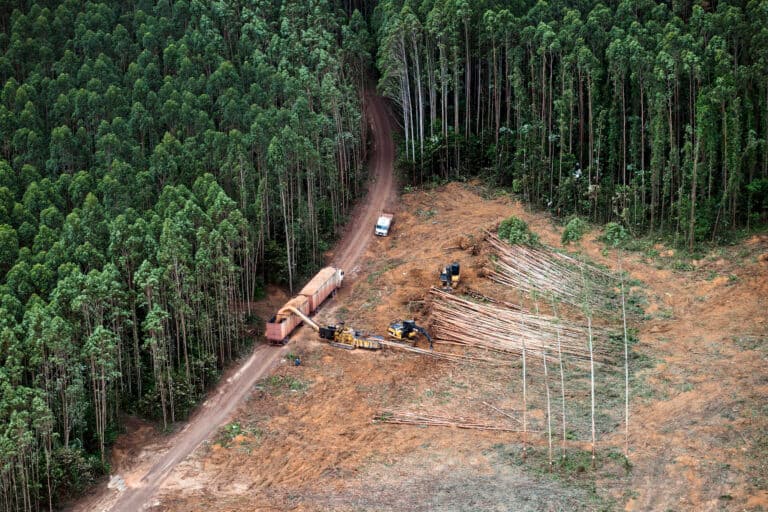Meta, the company that owns Facebook and Instagram, recently closed a deal to buy 1.3 million carbon removal credits from commercial tree plantations in Latin America, with an option for an additional 2.6 million credits through 2038.
The agreement, called “one of the largest of its kind,” was struck with Latin America’s largest investment bank, BTG Pactual.
The Forests & Finance policy assessment platform rates BTG Pactual’s environment policies at a 0.9 of 10 due to billions invested in beef and pulp companies with links to deforestation.
The Meta deal with BTG was struck through its forestry project, the Timberland Investment Group (TIG). TIG does not publicly disclose the locations of its farms. However, a 2023 Mongabay investigation found TIG had opened new offices in the Brazilian Cerrado at the heart of the paper and pulp industry as well as eucalyptus expansion in the region.
The carbon credit reforestation project involves buying up huge swaths of pastureland in Brazil’s Cerrado savanna region and turning them into eucalyptus plantations, which are exacerbating drought conditions.
The Cerrado regulates 40% of Brazil’s freshwater and is facing its worst drought in 700 years. The high water consumption of eucalyptus monocultures, 30-60 liters (8-16 gallons) of water daily per tree, is worsening drought conditions linked to climate change and extreme weather.
TIG’s work in the Brazilian Cerrado and other places can make money on several fronts: Trees are sold to the paper and pulp industry, the bank speculates on the new rural land acquired and forestry funds like TIG are also sold as a financial product in investment portfolios. Now, the company can also make money through carbon credits.
Conservation International, a U.S.-based nonprofit, serves as TIG’s impact adviser. “Meta is sending a message to the rest of the private sector: A sustainable future need not be austere; it can be abundant,” M. Sanjayan, CEO of Conservation International, said in a TIG press release.
However, Mongabay has identified potential conflicts of interest: BTG Pactual’s founder and de facto director sits on Conservation International’s board while BTG Pactual’s co-head of environmental, social and governance is the president and chairman of Conservation International Brazil’s Deliberative Committee.
When asked about a possible conflict of interest in June 2023, TIG replied of Conservation International: “Their role is entirely independent. Our investment process is based entirely on the assessments of their conservation science teams.”
Critics argue that these plantations are a land-grab and not a real climate solution.
“Because it’s sold as something green, when people hear about it, they believe it’s good for the environment,” Devlin Kuyek, a researcher at the nonprofit GRAIN, told Mongabay by phone. “But it’s not a solution, it’s a form of greenwashing. And it distracts us from the real need to dramatically reduce fossil fuel consumption and transform our food systems.”
Banner image: Eucalyptus trees cut down before being transported to a pulp mill for processing. Image © Daniel Beltrá/Greenpeace.

